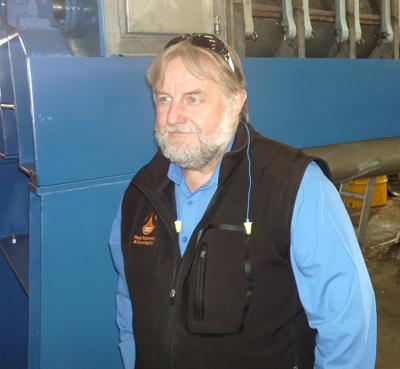Since 1990 Dairy Production almost Double But Waste Water Treatment Capacity Unchanged
Agri process threat to rural drinking water deliberately ignored
You claim that pastoral pollution is first, foremost and always New Zealand’s top environmental priority?Let us look at dairy production. Since 1990 dairy output has increased 85 percent. So during this time we can say that the output of waste has similarly almost doubled. Yet waste treatment capacity has hardly increased at all during this time.
What is your advice?Fifty years ago urban New Zealand faced the same problem and in much the same percentage growth. The cities were filling up. The difference was that something was done about the attendant water problem. A strategy, mainly an engineering one, was put in place and then successfully implemented. Auckland and Wellington are the two obvious examples. So my advice is that as with the urban example, the rural water/waste problem is (a) officially recognised and (b) a plan is put in place to bring the problem under management.
What is happening at the moment?We see the people who should be dealing with problem in a state of paralysis caused by fashionable analysis. This is artfully disguised by the appearance of seeking to deal with this kind of problem by haring off to a variety of international conferences. On their return they grandstand and mouth off about global issues instead of doing something about this critical localised problem of agribusiness waste treatment. It is hardly a laughing matter but I am reminded of the quip when the man proudly states that he is the one who decides if the United States should invade Russia; but that his wife decides where the couple will in fact live.
You claim that in Europe this pastoral production waste treatment problem has been recognised and dealt with?We are lagging. Worse still, we have our heads in the sand about it. Deliberately so. The technology exists, it is called closed-loop and turns waste into energy. It is now proven and standard in many parts of the world including the Far East. The country that once pioneered things like refrigeration, top dressing, and milking shed automation can no longer dispose of agribusiness process waste by pumping it under the ground, over the ground, or into streams hoping that it dissolves somewhere out to sea.
So what is happening at the moment, here?We are inviting disaster and I am not just talking about the obvious danger of a pastoral-export economy such ours being seen to be deliberately lagging in the installation and application of standard public hygiene-related technology. I want to take this opportunity of flagging also the danger of all this to our next biggest industry, tourism, which is going to be the next one affected by this failure to deal with an obvious public health problem.
From the MSCNewsWire reporters' desk - Friday 14 October 2016





